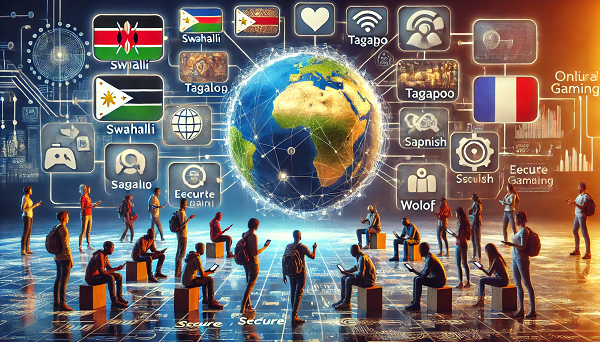Gaming Platforms Supporting Local Languages: How It Shapes Popularity Across Regions
The Power of Language in the Gaming World
In the dynamic and fiercely competitive online gaming market, platforms are constantly seeking ways to capture user attention and foster long-term engagement. While graphics, gameplay mechanics, and promotions often steal the spotlight, one element is increasingly emerging as a silent yet powerful forcelanguage. The ability of a gaming platform to support local languages can significantly influence its reception, user experience, and overall popularity, especially in linguistically diverse regions such as Africa. A strong example of this trend is the rapid rise of platforms like 1win africa which not only prioritize high-quality betting experiences but also cater to users with language-specific features, ensuring smoother interaction and deeper connection with the audience.
Why Language Support Matters
Language is more than just a medium of communicationit's a cultural marker and a tool of inclusion. In the context of gaming, particularly in online casinos and interactive environments, players are far more likely to engage with platforms that speak their language, both literally and figuratively. This is especially true in regions with linguistic diversity, such as Africa, Asia, and Latin America.
For example, Africa alone is home to over 2,000 languages. Expecting a Swahili-speaking Tanzanian or a Wolof-speaking Senegalese user to comfortably navigate an English-only interface not only diminishes the user experience but also poses a barrier to entry. A platform that supports local languages instantly gains a competitive advantage by making its content accessible, understandable, and culturally relevant.
Localization vs. Translation
Its important to differentiate between translation and localization. While translation merely converts text from one language to another, localization adapts the entire gaming experience to resonate with the cultural, linguistic, and regional nuances of a specific audience. This includes elements such as slang, payment methods, customer support, and even marketing campaigns.
Gaming platforms that invest in proper localization often experience higher user retention and satisfaction rates. According to industry reports, platforms that implemented localized content observed up to a 70% increase in engagement from target regions.

1win Africa: A Benchmark in Regional Integration
One of the standout examples of a platform succeeding through localization is 1win Africa. Known for its widespread presence across the continentfrom Ghana to Ethiopia and Mozambique to Algeria1win has adapted its services to meet the expectations and preferences of its diverse user base.
The site goes beyond mere accessibility. It allows players to navigate using regionally relevant languages and interfaces that reflect local cultural expectations. Whether it's customer support in French for users in Mali or simplified Swahili prompts in Kenya, 1win Africa showcases how embracing linguistic diversity translates into tangible user loyalty.
Additionally, the platform is secure and reliable. The use of RNG (Random Number Generator) technology ensures fair play, while safety measures are put in place to prevent any breaches or hacking attempts. The interface is sleek, the app runs smoothly across all devices, and the payment gateways are tailored for regional availabilitymaking it one of the most user-friendly gaming platforms operating in Africa today.
The Psychological Impact of Language Familiarity
When a user logs into a platform that greets them in their native language, the psychological comfort cannot be overstated. It fosters trust and belonging. This emotional bond can be especially important in betting environments where users are placing real money at stake.
Psychological studies indicate that people process information more quickly and accurately when its presented in their mother tongue. This leads to better comprehension of rules, terms, and bonuseswhich can directly impact a users willingness to participate and invest. When a platform feels familiar and accessible, users are more likely to return, recommend it to friends, and stay loyal over time.

